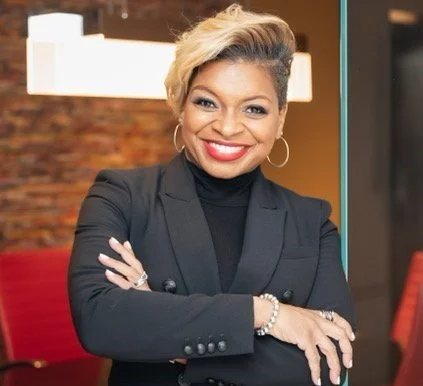Chesapeake Arts Center and Diversity, Equity, Inclusion, and Accessibility
As a community arts center, Chesapeake Arts Center (CAC) strives to create programs and an environment that is welcoming, representative, and inclusive to individuals from all backgrounds. CAC condemns racism, discrimination, systemic oppression, and white supremacy in all forms. Our goal is to create structural and systemic changes within CAC and by extension, our community, to ensure equal representation and inclusion by marginalized, underrepresented, and oppressed groups or individuals, specifically Black, Indigenous, and People of Color (BIPOC). Through the actions outlined below, and those yet to be uncovered, we will listen, learn, and act.
CAC’s programming choices will aim to amplify the work of BIPOC artists in exhibitions, educational programming, performances, and other mission-focused activities. We can use art to help imagine and deliver a world of equality and equity.
We will develop relationships with BIPOC artists and BIPOC-led organizations and businesses to tell their stories through art and history.
We will partner with organizations who uphold anti-racist values and that are committed to diversity and inclusion.
We will offer and require training for our Board, staff, instructors, and volunteers about anti-racism, white privilege, and dismantle anti-equity policies that currently exist at CAC.
We will evaluate and change our hiring practices to mitigate bias in our search processes to build a diverse staff across all aspects of our organization, including leadership positions.
We will not tolerate blatant or latent discrimination by Board, staff, instructors, volunteers, partners, artists, patrons, or other individuals or entities who are affiliated with CAC.
We will engage our Board and its Governance Committee to ensure our Board and its leadership reflects the diversity of the community CAC represents.
We will not tolerate complacency in any work we undertake – and commit to ongoing efforts to establish an organization and community that is just and inclusive.
All of these initiatives are integrated in CAC’s 2023-2026 strategic plan.
Land Acknowledgement Statement
We acknowledge the lands and waters now known as Maryland are the home of its first peoples: the Accohannock Indian Tribe, Assateague People’s Tribe, Cedarville Band of Piscataway Indians, Choptico Band of Indians, Lenape Tribe, Nanticoke Tribe, Nause-Waiwash Band of Indians, Piscataway Conoy Tribe, Piscataway Indian Nation, Pocomoke Indian Nation, Susquehannock Indians, Youghiogheny River Band of Shawnee, and tribes in the Chesapeake watershed who have seemingly vanished since the coming of colonialism. We acknowledge that this land is now home to other tribal peoples living here in diaspora. We acknowledge the forced removal of many from the lands and waterways that nurtured them as kin. We acknowledge the degradation that continues to be wrought on the land and waters in pursuit of resources. We acknowledge the right of the land and waterways to heal so that they can continue to provide food and medicine for all. We acknowledge that it is our collective obligation to pursue policies and practices that respect the land and waters so that our reciprocal relationship with them can be fully restored.
2024 BUILDING BRIDGES CONFERENCE
August 22, 2024 | 8 am - 4 pm
8 am Networking Breakfast/ Check-In | 9 am Conference
Chesapeake Arts Center
Studio 194 and main education wing
On August 22, 2024, the Arts Council of Anne Arundel County, Chesapeake Arts Center, and The AngelWing Project hosted its third annual conference devoted to ensuring access to the arts for every member of our community.
BUILDING BRIDGES was a day of learning, discussion, and networking. Topical presentations, panel discussions, and interactive sessions provided stakeholders with the tools they need to reach underserved populations, build partnerships, engage broader audiences, and ensure their organization’s staff, boards, and volunteer base are representative of the community.
2023 Let’s Continue Talking About DEIA
In The Arts Series
-
Guest Speaker: Kashonna Marrow I President & CEO of Simply Kashonna
D.E.I.A in Unconscious Bias
Resources shared during the seminar, can be found below:
-
Guest Speakers: Deena Kilmon from Discover Easton & Jessica Bellis from COO of the Avalon Foundation
D.E.I.A in Accessibility
-
Guest Speaker: Ruby Lopez Harper I America for the Arts
D.E.I.A in Marketing: Changing the Way You Market
Native-Land.ca | Our home on native land
Language Bank | Americans for the Arts
Inclusive Language Guide - NASAA (nasaa-arts.org)
Inclusive Language for Marketers: A Pocket Guide (linkedin.com)
2022 Let’s Continue Talking About DEIA
In The Arts Series
-
Guest Speaker: Ruby Lopez Harper | America for the Arts
Let’s Start Talking About DEIA in the Arts
Resources shared during the seminar, can be found below.
-
Guest Speaker: Dr. Pamela Brown | Executive Director of the Anne Arundel County Partnership for Children, Youth and Families
Conversation II - Community Engagement
Powerpoint presentation, click here
-
Guest Speaker: Rob Levit | Executive Director of Creating Communities
Conversation III - Partnering for Impact
Powerpoint presentation, click here
-
Guest Speakers from the Office of the County Executive:
Pete Hill | Director of Equity, Diversity, and Inclusion
Asha Smith | Equal Opportunity and Human Relations Officer
Conversation IV: Exploring Microaggressions
To view recorded talk with Pete Hill and Asha Smith, click here





